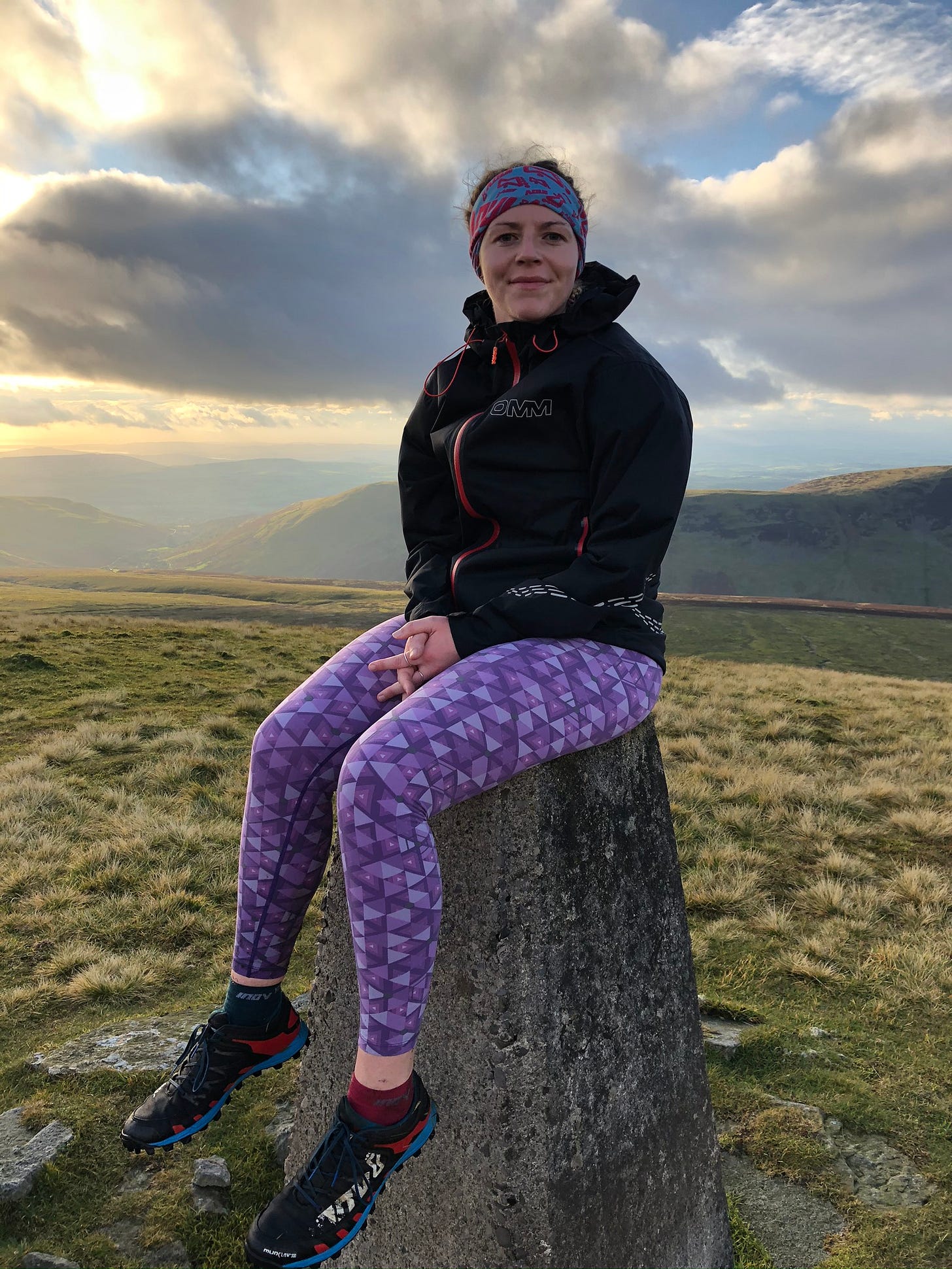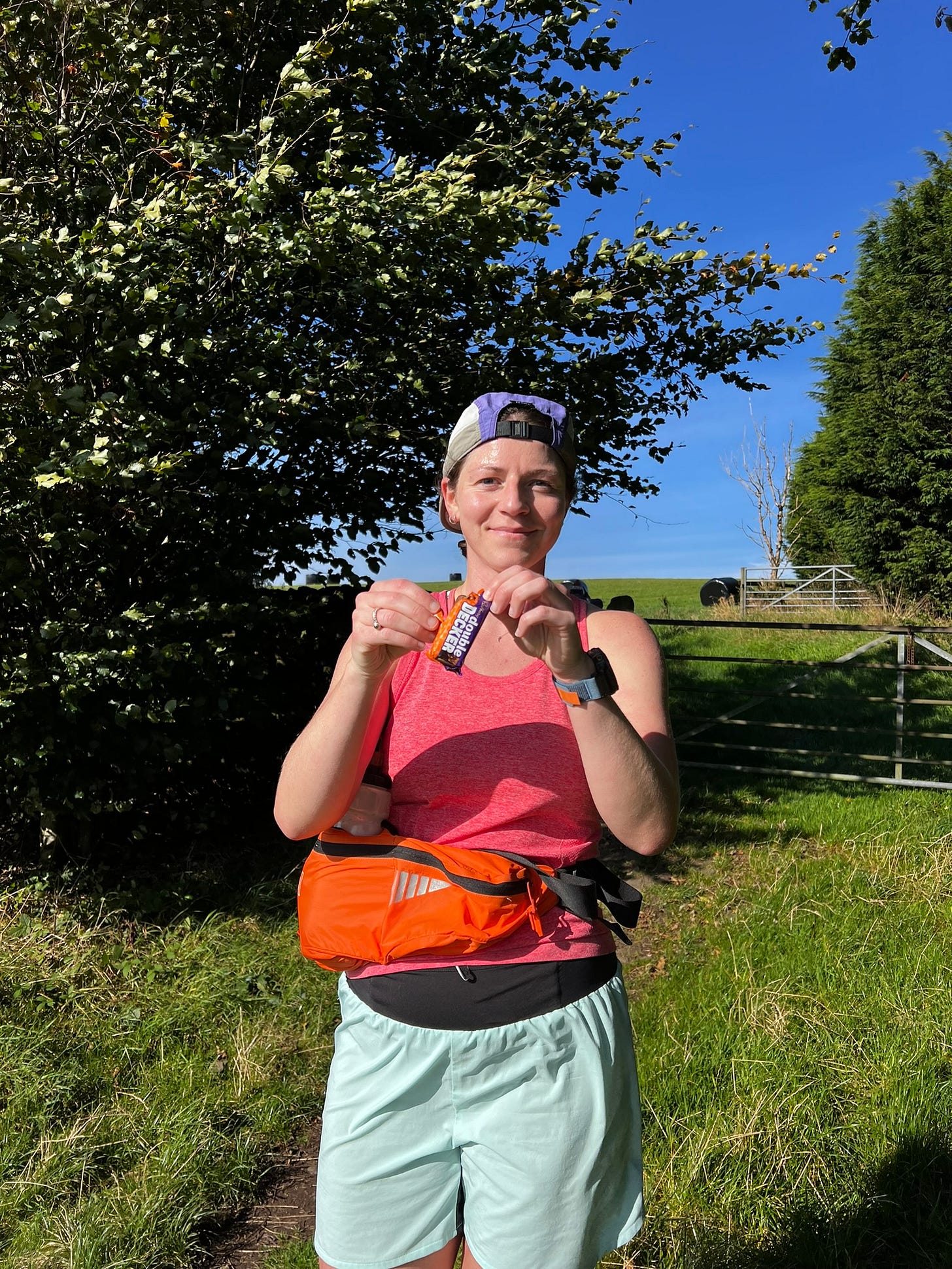“Whatever you’re doing, remember why you started doing it in the first place: because you have a passion for it,” (ex-footballer Alex Scott on the best advice she was given).
On the 30th of December, I completed 1,000 miles of running in 2024. I finished with a day to spare with a 12-mile finale because the 31st was a bit of a squeeze between work and New Year’s Eve plans.
It could be the most I’ve run in a year. I don’t know because I only started looking at the Strava tally in 2023. Promoting annual stats didn’t seem a ‘thing’ before the Spotify Wrapped phenomenon took off and all the other tech companies followed suit.
The number isn’t significant, it’s just a nice round one. It would be of no benefit to me if that number was 3,000 or 4,000 - I wouldn’t be any better at running, or any happier in life. In fact, I’d probably be utterly miserable because I’d be running all the time, swimming less, and not doing the other things I enjoy. I’d be full of injuries and much worse at sport overall.
It wasn’t really a goal for me to hit it either, at least not an important one. At the start of December, I saw I had logged over 900 miles, and I thought it was probably doable. An arbitrary number is a good enough reason to get out of the door during a cold, dark December.
During that final run, I had time to think, reflect and ask myself some questions, which brought up a few key points about healthy relationships with sport.
Firstly, the questions:
Favourite miles of the year?
It’s difficult to choose - there have been some great days basking in the sun on the hills, or winter bluebird days exploring new places. Immediately, I noticed that all of these potential favourites were about exploring, seeing things, going places, rather than about distance/pace/time. There were still plenty of hard miles in there, but I wouldn’t say suffering would count as “favourite”.
I settled on my favourite ones being the last few miles of The Three Fells with my closest friends, partner, and parents supporting me on a random Tuesday in May after nine solo hours of constant rain, the sun came out for the finish.
Worst miles of the year?
Our brains have a funny way of forgetting some of these. Most likely bad weather days on the fells, or having to bail on runs during my severe fatigue period in late summer, which was mainly caused by stress and burnout from work, life, and exercise.
The phrase ‘you never regret a run’ is not true. During this period, spending my energy on running would leave me in a heap for the rest of the day with my brain feeling like mush. It’s OK not to go!
On to the key points:
Casual running: Realising how fortunate and appreciative I am to be in a position to knock out a casual run of that distance. I think lots of people get bogged down in stats, their own heads, and competing with others rather than take the opportunity to look around every now and then at the bigger picture of what they are capable of.
There are thousands of people out there who would dream of being able to run that far, including myself from many years ago. Every now and then, it’s good to reflect on how far you’ve come.Healthy relationships: Feeling grateful and extremely happy to have a good, healthy relationship with sport.
Sadly, this is not the case for some people, either knowingly or unknowingly. Many people promote things like RED (run every day), endorse constant meaningless phrases like “dig deep” and “pain cave” as their default mode, and push their bodies to the limit when they’re not in good health (illness/injuries etc) and are applauded for it.
There are times when we should push ourselves and “dig deep” — in a hard training session, in a race, and doing crazy challenges — but these instances are fewer and far between than is often made out. Making this your everyday mentality, or doing every session hard is unhealthy and unsustainable, it’s surprising the amount of that there is around.I speak from experience. In 15 years of doing sport at this level, a handful of those have ventured into unhealthy. However, during those 12 miles, I was grateful to have spent years doing the work to get to a better place… which brings me to the final two points…
My hobbies aren’t my identity: I don’t attach my worth to sport or labels. It’s common to reduce ourselves to bios: runner, swimmer, journalist, etc. I enjoy running and swimming, and journalism is my career, but they’re individual parts of my life and not my whole life.
If any of these were taken away, sure, it would be sad but it wouldn’t cause an identity crisis.
Doing it for the gram’: A good question to ask often: Who are you doing this for, you or Instagram & the weight of expectation from your followers?
The ability to choose to do something for yourself is powerful when it’s done right.
Overall, I enjoyed having a meaningless task that at the time, nobody knew about - it felt personal and secret.Further in-house reading on healthy relationships
Granting permission to deviate & add value - (Emma Goodwin-Jones)
The joy of dipping a toe - (Ellie Wood)
Recommendations
Last week’s edition on ageing athletes resonated with a lot of people, if you haven’t read it, check it out
From a local club in the Highlands to the world stage, Richie, who has cerebral palsy, has been competing for almost 40 years - (Scottish Athletics)
Being physically fit is more important than your body weight in lowering the risk of death and heart disease, a recent study found - (Health)
Countryside folk won’t be surprised to learn that air pollution has been linked to acute mental illness (The Times)
Physio, 52, crowned world ice swimming champion - (BBC)
Global rugby star Ilona Maher on not having imposter syndrome - (CNN/Instagram)
The key to happiness in life is social fitness - (The Times)
Fitness and muscle strength could halve cancer patient deaths, study suggests - (BMJ)
Are Americans Doing Fitness Wrong? - (The New York Times)
Social media breaks are becoming more common - True knowledge is worth a million TikToks - (The Times)





Thanks for this article... a lot of it makes sense to me!
I suffered multiple injuries in a fall in summer 2023 which led to months off running. When I started again, I was obsessed with upping the miles and the pace as quickly as possible. I think it was my way of convincing myself that I was getting better! In reality, I wasn't doing myself any good! A few months ago I made the decision to cancel my paid subscription to Strava (after all, how does Strava know what I'm trying to achieve?). It took a while to get used to not being able to see detailed segment data etc, but I think it's made me a happier, healthier runner. It means I can stop and look at the view or watch a barn owl hunting as I did at the weekend. I'm still training for a big run in the summer, but I've learnt not to push myself like I was in the first 12 months of recovery.